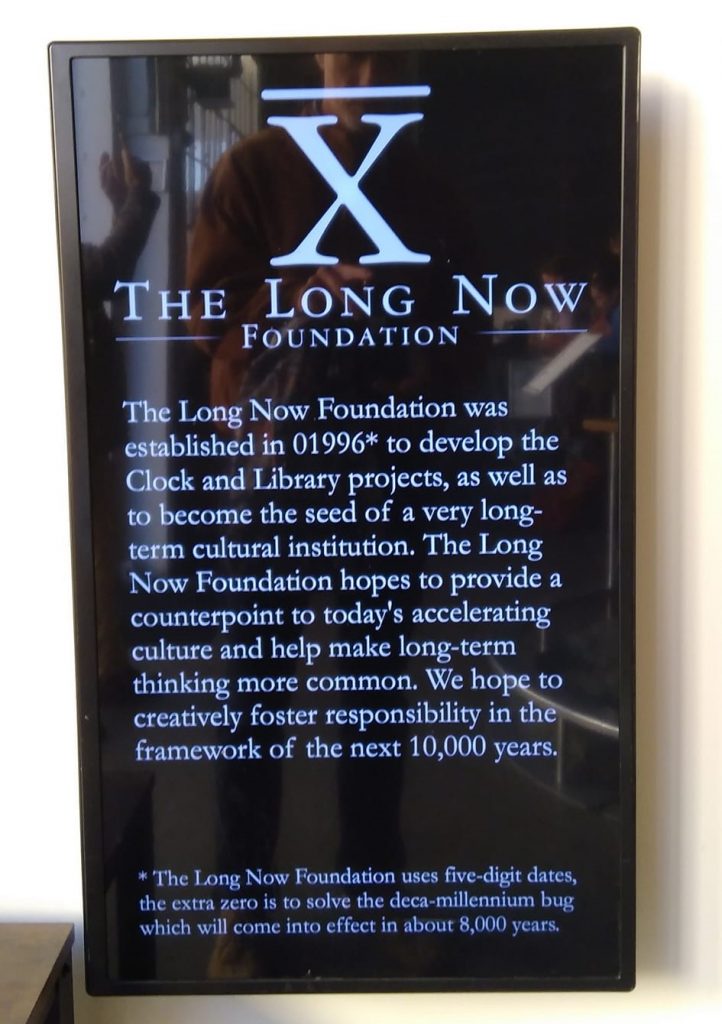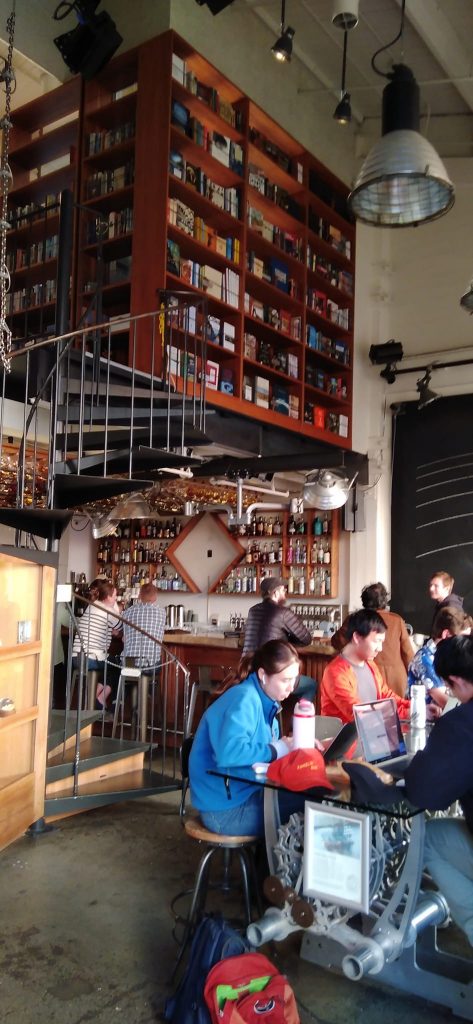Long Now at Long Last
Postat den 1st April, 2024, 15:20 av Cornelius Holtorf
Last night, I finally visited The Interval – home of The Long Now Foundation in San Francisco. A wonderful location and initiative, promoting long-term thinking since 01996:
The Interval is a bar, café, museum, and the home of The Long Now Foundation. Featuring a floor-to-ceiling library of the books you might need to rebuild civilization, mechanical prototypes for a clock meant to last for 10,000 years, art that continually evolves in real time, and a time-inspired menu of artisan drinks.

The ‘long now’ and futures-thinking are as worth promoting today as they were back in 2006, when Michael Chabon wrote for Details:
I don’t know what happened to the Future. It’s as if we lost our ability, or our will, to envision anything beyond the next hundred years or so, as if we lacked the fundamental faith that there will in fact be any future at all beyond that not-too-distant date. Or maybe we stopped talking about the Future around the time that, with its microchips and its twenty-four-hour news cycles, it arrived. […] The Future was represented so often and for so long, in the terms and characteristic styles of so many historical periods from, say, Jules Verne forward, that at some point the idea of the Future—along with the cultural appetite for it—came itself to feel like something historical, outmoded, no longer viable or attainable.

On my visit to The Interval, I also noted two things that I had not previously thought about regarding the work of The Long Now Foundation.
- Firstly, its thinking is most prominently focussed on technology rather than, say, social or cultural issues. But is the long-term future really a question that is best advanced by technological innovations like the Foundations famous “Clock of the Long Now”?
- Secondly, while they certainly champion long-term thinking in terms of millennia rather than decades, they developed this thinking before the emergence of the concept of “futures literacy” at UNESCO. The latter emphasizes the skills of becoming aware of your assumptions of the future and of imagining multiple alternative futures.
I can’t help wondering about the future of the Long Now Foundation. In other words, how LONG is it until its focus is going to be adapted to one or more new futures?
Det här inlägget postades den April 1st, 2024, 15:20 och fylls under blogg
